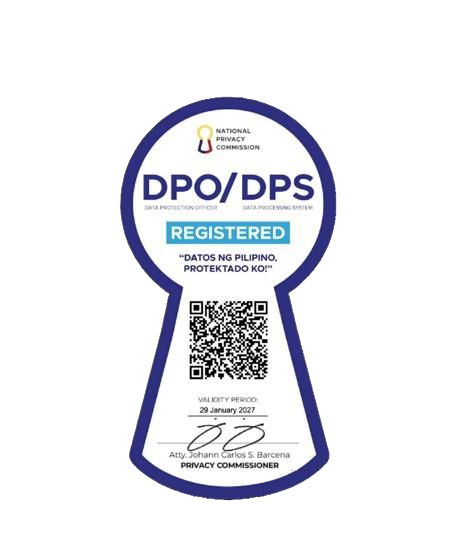When your SME faces delayed payments or customers who can’t settle their accounts, keeping your finances on track becomes a real challenge. Many business owners turn to financing solutions to bridge these cash flow gaps, often borrowing from creditors to keep operations running smoothly.
In the Philippines, strict legal guidelines, such as the Financial Consumer Protection Act (R.A. 11765), and regulations from the Bangko Sentral ng Pilipinas and SEC, govern how debts are collected and what rights you have as a debtor.
This article breaks down the essential legal rules around debt collection and offers practical tips to help you protect your business, including smart financing options.
Overview of Debt Collection Laws in the Philippines
Debt collection in the Philippines is governed by a combination of constitutional guarantees, civil and criminal statutes, and sector-specific regulations. Here's a breakdown of the most important legal guidelines you need to know:
- Constitutional Protection
- Section 20 of 1987 Constitution explicitly prohibits imprisonment for non-payment of civil debts and ensures due process and privacy for all parties involved.
- Ensures due process and privacy for all parties involved in debt-related disputes.
- Financial Products and Services Consumer Protection Act (R.A. 11765)
- Applies to entities regulated by BSP, SEC, and the Insurance Commission.
- Requires fair, ethical, and respectful collection practices.
- Gives regulators authority to penalize, suspend, or shut down violators.
- Bangko Sentral ng Pilipinas (BSP) Circulars
- Circulars 454, 702, 957, and 1048 govern debt collection by banks and credit card companies.
- Limit call hours to 6:00 AM–10:00 PM only.
- Ban public shaming, harassment, or any form of abusive collection behavior.
- Credit Card Industry Regulation Law (R.A. 10870)
- Sets specific rules for the issuance, billing, and collection of credit card debt.
- Protects consumers from predatory or misleading practices.
- SEC Regulations for Collection Agencies
- Require all third-party collection agencies to be properly licensed and regulated.
- SEC Memoranda also outline acceptable behavior and reporting requirements to ensure accountability.
- Why It Matters for SMEs
- As a business, understanding these laws helps you:
- Stay compliant when collecting from clients or customers.
- Protect yourself when facing collection from lenders or service providers.
- Avoid legal issues, fines, or damage to your business reputation.
- As a business, understanding these laws helps you:
Understanding the legal environment is just the beginning. As a creditor, knowing your specific rights within this framework is essential for enforcing collections ethically and effectively. In the next section, we’ll explore what protections and powers the law grants to creditors in the Philippines.
Rights of Creditors
As a creditor in the Philippines, you have the legal right to demand payment for valid debts under agreed terms. If a borrower defaults, you may:
- File a civil case for collection, including through the Small Claims Court for lower amounts.
- Engage licensed collection agencies, provided they follow ethical and legal standards.
- Negotiate new payment terms or restructure the debt.
- Pursue legal remedies for fraud, such as cases involving bounced checks.
When making collection calls, you must follow time restrictions. According to SEC Memorandum Circular 18, series of 2019, and statements from SEC officials, collection agencies and lenders are prohibited from contacting borrowers at unreasonable hours, specifically, calls should not be made before 6:00 a.m. or after 10:00 p.m.
Contacting debtors outside these hours, or at their workplace, is considered harassment and is prohibited. Harassment, intimidation, or public shaming is strictly forbidden by law.
On the other side of the equation, it’s essential to recognize the rights of debtors, ensuring that the collection process remains fair, transparent, and respectful, in line with the law.
Rights of Debtors
If you are an SME owner or individual debtor, Philippine law ensures you are treated fairly during the collection process:
- You are protected from harassment, threats, and public shaming by creditors or their agents.
- Your personal information must remain confidential; collectors cannot disclose your debt to uninvolved parties.
- No one can be imprisoned for non-payment of debt, except in cases involving fraud.
- You have the right to be informed about your debt and to dispute or negotiate payment terms.
- Collection calls are only allowed between 6:00 AM and 10:00 PM; calls outside these hours, or frequent calls in a single day, may be considered harassment.
- You may request new payment schedules or debt restructuring.
These rights are reinforced by the Financial Consumer Protection Act, Data Privacy Act, and BSP regulations, ensuring debt collection remains fair and respectful. When it comes to the consequences of not following the law, let’s examine the penalties collection agencies and other businesses face for unfair debt collection practices, which ensures fairness across the board.
Penalties for Non-compliance by Collection Agencies
The Securities and Exchange Commission (SEC) has set clear penalties for collection agencies and lending or financing companies that violate unfair debt collection practices in the Philippines. Under SEC Memorandum Circular 18, series of 2019, and reinforced by the Financial Products and Services Consumer Protection Act (R.A. 11765), the following penalties apply:
- Fines: Lending companies found violating the circular may face fines starting at ₱25,000 per violation, while financing companies may be fined ₱50,000 per violation.
- Higher Fines and License Revocation: For more serious or repeated offenses, the SEC can impose fines up to ₱1 million per act, along with the suspension or revocation of the company’s license to operate.
- Criminal Liability: Under R.A. 11765, violators may also face criminal prosecution, with penalties reaching up to ₱2 million in fines or imprisonment for up to five years, or both.
These penalties are designed to protect borrowers, including SMEs, from harassment and abusive collection tactics, ensuring that all collection activities remain within the bounds of the law. Next, we’ll break down the key considerations every debt collector must keep in mind, from preventing harassment to maintaining data privacy, ensuring compliance at every step.
Important Considerations for Debt Collectors
If you’re collecting debts from individuals or any enterprise in the Philippines, strict compliance with laws and regulations is essential to avoid penalties and protect your agency’s reputation. Here are key considerations:
- No Harassment or Abuse: Collectors are strictly prohibited from using threats, profanity, or public shaming. Harassment—including repeated calls, intimidation, or disclosing debt information to third parties—can result in civil, administrative, or even criminal liability.
- Data Privacy Compliance: Only the minimum necessary personal data should be accessed for collection purposes. Collectors must not scrape contact lists or share debtor information without lawful basis, as mandated by the Data Privacy Act and reinforced by SEC and NPC guidelines.
- Proper Licensing: Third-party collection agencies must be licensed by the SEC (for lending and financing companies) or accredited by the BSP (for banks). Operating without proper authorization is a violation that can result in severe penalties or business closure.
- Professional Communication: All communications, whether by phone, SMS, email, or in writing, must be professional, factual, and respectful. Demand letters and notices should clearly state the amount owed and the legal basis for collection.
- Commission and Incentives: No incentive scheme should encourage abusive or illegal collection practices. Commission arrangements must comply with regulatory standards, and as of June 2025, the BSP may impose caps on collector commissions.
- Permitted Contact Hours: Debt collectors must only contact debtors between 6:00 a.m. and 10:00 p.m., unless the debtor has given written consent for other hours. Calls or messages outside these times are considered unfair collection practices and may lead to administrative sanctions.
By following these considerations, debt collectors can ensure their practices are legal, ethical, and effective, reducing the risk of complaints and regulatory action.
Looking for ethical financing solutions? Here’s how partnering with a responsible lender like n90 can support your business with fair practices and flexible loan products designed to help you handle cash flow challenges.
Partnering with a Responsible Lender: How n90 Supports Ethical Financing for SMEs
Choosing a financing partner that values transparency and ethical practices is as important as understanding debt collection laws. Here’s how n90 aligns with these principles to support Philippine SMEs:
- Transparent Terms: Clear disclosure of all fees and charges with no hidden costs or surprises.
- Ethical Collection Practices: Commitment to fair, respectful communication and compliance with legal guidelines.
- Tailored Financial Products: Business loans, bridge loans, and invoice financing designed to fit your cash flow needs.
- Quick and Simple Approvals: Streamlined application process with fast turnaround times to provide timely support.
- Relationship-Based Service: Personalized guidance throughout the loan lifecycle, from application to repayment.
- Focus on Long-Term Success: Partnering with SMEs to build sustainable growth, not just short-term financing.
We at n90 always put your business’s integrity and long-term success first.
Conclusion
Dealing with the complexities of debt collection in the Philippines requires a clear understanding of legal rights, responsibilities, and ethical practices. By staying informed and choosing partners who prioritize transparency, SMEs can manage cash flow challenges with confidence and compliance. n90 stands ready to support your business with ethical lending solutions and tailored financial products designed for Philippine SMEs.
Get in touch with n90 today to fast-track your loan application and get expert guidance every step of the way.
Frequently Asked Questions (FAQs)
1. What are the legal hours for debt collection calls in the Philippines?
A. Debt collectors are only allowed to contact debtors between 6:00 a.m. and 10:00 p.m. Contacting outside these hours is considered an unfair collection practice and may result in penalties for the collector.
2. What should I do if I feel harassed by a debt collector?
A. If you experience harassment, threats, or public shaming from a collector, document every incident and report it to the SEC, NBI Cybercrime Division, or the National Privacy Commission. These agencies can investigate and enforce penalties against abusive collectors.
3. Can I be imprisoned for not paying my business loan in the Philippines?
A. No, you cannot be imprisoned for non-payment of a business loan. However, creditors may file a civil case to recover the debt, and in cases involving fraud (e.g., issuing a bouncing check), criminal liability may apply.
4. What are my rights if I want to stop debt collectors from contacting me?
A. You have the right to request in writing that a debt collector stop contacting you. Once notified, the collector must honor your request and pursue other lawful means of collection.
5. What types of loan products does n90 offer to SMEs?
A. n90 provides a range of financing solutions for SMEs, including business loans, bridge loans, and invoice financing, each designed to help manage cash flow and support business growth.














